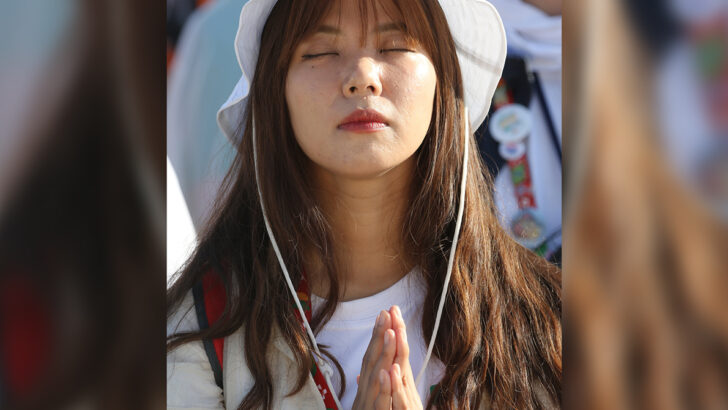Faith is our response to God, who reveals himself to us, bringing us light as we search for the ultimate meaning of his life. The desire for God is written in the human heart. God never ceases to draw man to himself.
Our dignity rests above all because we are called to communion with God as soon as we came into being. We are created by God and for God. Only in God will we find truth and happiness. This search for God demands of us effort of intellect, a will and the witness of others. There are universal expressions to our quest for God in our beliefs and behaviour: prayers, rituals, meditations…
This bond can be forgotten or rejected because of different causes: revolt against evil in the world; ignorance or indifference; the cares and riches of this world; bad example on the part of believers; hostility; the attitude of sinful person which hides from God out of fear.
Ways of coming to know God
The person who seeks God discovers certain ways of coming to know him – proofs for the existence of God – which allow us to attain certainty about the truth. They have a twofold point of departure: the physical world and the human person. In all this we discern signs of our spiritual soul, the seed of eternity we bear in ourselves.
Our faculties make us capable of knowing of the existence of a personal God. To be able to access real intimacy with him, God willed to reveal himself to us, and to give us the grace of being able to welcome this revelation in faith. The proofs of God’s existence can predispose us to faith and help us to see that faith is not opposed to reason.
The knowledge of God
God can be known with certainty from the created world by the natural light of human reason. We have this capacity because we are created “in the image of God”. Only by being enlightened by God’s revelation we can exceed our understanding.
The truths that concern the relations between God and us transcend the visible order of things. If they are translated into human action and influence it, they call for self-surrender and abnegation. We struggle to comprehend these truths by the impact of the senses and the imagination and by disordered appetites – consequences of original sin.
How can we speak about God?
Since our knowledge of God is limited, our words fall short of the mystery of God.
All creatures bear a certain resemblance to God, especially us, created in the image and likeness of God. The perfections of creatures reflect the infinite perfection of God.
God transcends all creatures. We must purify our language of everything in it that is limited if we are not to confuse our image of God with our human representations. We can’t grasp what God is, but only what God is not, and how other beings stand in relation to Him.
Next week we will explore paragraphs 50 to 74, ‘God’s revalation


 Renata Milán Morales
Renata Milán Morales A pilgrim prays during the closing Mass during World Youth Day at Campo da Graça in Park Tejo in Lisbon, Portugal, August 2023. Photo: OSV/Bob Roller
A pilgrim prays during the closing Mass during World Youth Day at Campo da Graça in Park Tejo in Lisbon, Portugal, August 2023. Photo: OSV/Bob Roller